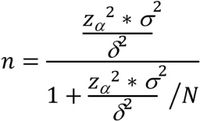A recent study investigates how sleep quality influences cardiopulmonary endurance in university students through emotional regulation and exercise adherence. In this context, maintaining good cardiopulmonary endurance is vital for vascular health, yet recent trends reveal an alarming uptick in cases of metabolic syndrome among university students, primarily attributed to inadequate physical exercise and suboptimal sleep.
The research conducted at Nantong University in Jiangsu Province, China, involved 266 students, drawing attention to the intricate connections between sleep quality and physical performance. The study highlighted that while many students believed they were rested, only 30.5% reported high-quality sleep, with the majority at high risk for low maximum oxygen uptake (VO2 max), a critical indicator of fitness.
The aim of the research was clear: to delve into the mechanisms linking sleep to cardiopulmonary endurance, specifically targeting emotional regulation and adherence to exercise as critical mediators. Through tests such as the 20-meter shuttle run and established psychological assessments like the Pittsburgh Sleep Quality Index, Emotional Intelligence Scale, and Exercise Adherence Scale, the researchers gathered extensive data over a two-month period.
The results revealed that while the overall sleep quality of university students was relatively good, the correlation between sleep quality and cardiopulmonary endurance was notably low (r = -0.033). This suggests that despite perceived good sleep quality, the impact on physical endurance might not be straightforward. However, the authors concluded that higher sleep quality could predict better cardiopulmonary endurance, stressing the role of emotional regulation and exercise adherence as crucial links in this chain.
Emotional self-regulation was found to correlate negatively with sleep quality (r = -0.281) and positively with exercise adherence (r = 0.499), indicating that students with better emotional control are more likely to engage in regular exercise. This aspect is essential, given that the psychosocial environment of university life can lead to increased stress and emotional fluctuations, which may detrimentally affect both sleep and exercise compliance.
The study posits that sleep impacts physiological performance primarily through psychological mechanisms—enhanced emotional management and adherence to physical activity. By employing statistical analysis methods, including path analysis and Bootstrap methods, the research demonstrates significant indirect effects of sleep quality on endurance via emotional regulation.
Moreover, the study’s Hypothesis H2 and H3 suggested that emotional management and sustaining exercise diversity play a chain-mediated role influencing students’ endurance. As students engage more consistently in physical exercise, they report improved emotional states and a better response to stress, which reflects upon their physical capabilities.
This intricate interplay underscores the importance of interventions targeting sleep quality improvement, emotional management training, and promoting active lifestyles. By fostering environments where university students can thrive both psychologically and physically, academic institutions can help counteract the alarming trends of low cardiopulmonary endurance interconnected with rising risks of chronic health conditions.
Overall, this research contributes to the growing discourse on the multifaceted nature of health in university settings and illustrates the potential pathways toward enhanced physical and mental well-being. Such insights encourage educational policies to integrate sleep health and emotional intelligence training into university programs, ensuring students have the tools necessary to maintain a balance conducive to both their academic and personal success.




